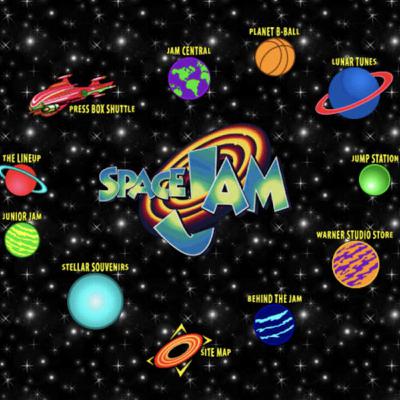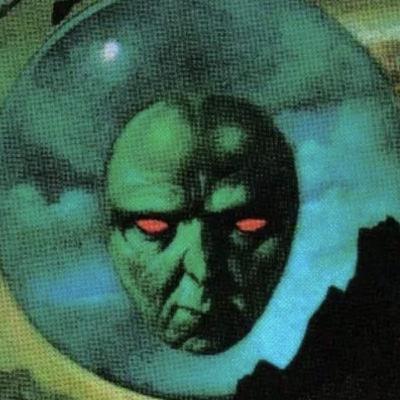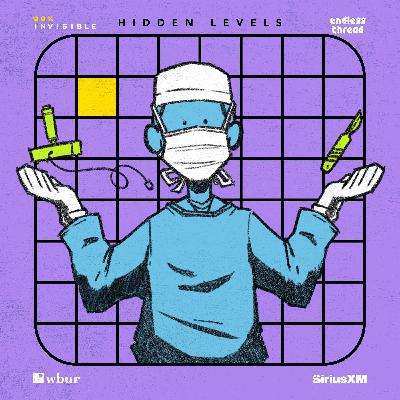Discover Endless Thread
Endless Thread

435 Episodes
Reverse
What temperature do you like your fruit? What is the correct way to peel a banana? This week on Endless Thread, Ben and Amory cherry pick a couple of the hottest fruit debates taking place on Reddit.
Show notes:
My husband is mildly infuriated that I open a banana from the antenna side! (Reddit)
CMV: The only correct way to peel and eat a banana is from the bottom. (Reddit)
Microwaving fruit is the way to go (Reddit)
I believe that fruit is better microwaved. (Reddit)
This content was originally created for audio. An auto-generated transcript is available on Apple Podcasts and Spotify. Heads up that some elements (i.e. music, sound effects, tone) are harder to translate to text.
In 1970, a young biologist named David Mech published what could be the most consequential book on wolves ever written. At the time, The Wolf: The Ecology and Behavior of an Endangered Species, was the most complete collection of scientific knowledge on wolves money could buy, and it became best seller for Dave's publishers. But outside of the world of wolf biology, the book is also credited with unleashing a certain idea into our popular lexicon: The Alpha.
The thing is, Dave made a mistake – and the alpha wolf, doesn't exist.
This week on Endless Thread, Ben and Amory track down the origins of "the alpha," and whether this idea – which has been recanted by the very scientist who popularized it – has any legitimacy when talking about people.
Show notes:
The Myth of the Alpha Wolf (The New Yorker)*
Do alpha males even exist? (The Guardian)
Elon Musk Shares Theory That Only ‘Alpha Males’ Should Vote (Newsweek)
This content was originally created for audio. An auto-generated transcript is available on Apple Podcasts and Spotify. Heads up that some elements (i.e. music, sound effects, tone) are harder to translate to text.
Fast-and-cheap shipping is now foundational to the American way of life, thanks in large part to Amazon Prime. Still, when producer Grace Tatter sees a video of a man claiming that he's continuously ordering and returning an 110-pound anvil from Amazon with no repercussions from the tech giant, she has questions. Is this legit, or is it a Wile E. Coyote-level scheme? Unlike an anvil, the answer can't be found online.
Show notes:
"this guy has been buying and returning 110lb anvils on Amazon for 8 months now"
(Reddit)
This man keeps buying and returning 110- anvils on Amazon (Fast Company)
Johnbo's TikTok
This episode was produced by Grace Tatter, and co-hosted by Grace Tatter, Ben Brock Johnson, and Amory Sivertson. It was edited by Meg Cramer. Mix and sound design by Emily Jankowski.
Adam Aleksic's Roman Empire is language, particularly how algorithms are changing the way we all use words. This week, Endless Thread gets algospeak-pilled and learns how "unalive" spread from a kids' Spider-Man cartoon to TikTok mental health communities trying to avoid censorship; what we're really saying when we say we're "goblin-core," and whether this all means we're "cooked."
Show notes:
Algospeak: How Social Media Is Transforming the Future of Language
This episode was produced by Grace Tatter, edited by Meg Cramer, and co-hosted by Ben Brock Johnson and Amory Sivertson. Mix and sound design by Paul Vaitkus.
10 years ago, Justin found himself on the side of the road with a blown out tire. Hours went by and no one stopped to help. But just as he was about to give up, something happened that changed Justin forever.
This episode was originally published on Nov. 13, 2020.
Who gets credit for starting a meme? Usually... nobody — they're made too quickly and organically. In the case of one of the most famous bait-and-switch memes of all time, the "Rick Roll," we may be looking at something experts call convergent evolution. Did the Rick Roll originate with a piece of code on the message board 4Chan, or with a prank call to a local sports show in Michigan? And why does the Rick Roll have such staying power? Is it codified in the DNA of the song itself?
We explore the meme’s origin, the history of the song, "Never Gonna Give You Up," and its impact on both internet users during COVID-19 and on the performer himself.
This episode was originally published on Oct. 08, 2021.
2025 marks 20 years of Google Maps — a tool that many of us would be, quite literally, lost without.
We hear from New Orleanians who used Google Maps/Google Earth in its inaugural year to survey the damage to their homes following Hurricane Katrina.
We also talk to the internet's Map Men, who ask whether "the best maps humanity has ever produced are simultaneously the worst maps for humanity?" in their new book, "This Way Up: When Maps Go Wrong (And Why It Matters)."
There's a lot of drone warfare footage on the internet from Ukraine and Russia. But over the last year, a surprising change has emerged, via photos from the battlefront posted online. It has become clear that a huge part of the drone war, from dropping grenades on soldiers in bunkers, to dropping explosives on infrastructure or airfields, is wired. Those wires are fiber optic cable, stretching from drone operators to the drones, which spool out cable across the ground and over trees along the battlefront. These drones are often single-use rarely returning from the mission they set out on. And the spools of fiber optic cable, stretching over 30-50 kilometers, don't get cleaned up. We explore this evolution of drone use in the conflict - where it came from, and why.
The internet decides what's for dinner.
Ruby Tandoh is the author of the new book, All Consuming: Why We Eat the Way We Eat Now. A stint on the Great British Bake Off when she was in college launched her into the world of cookbooks — increasingly irrelevant in a world where we're more likely to turn to Google for a recipe than turn to our bookshelves — and provided her an education in how pop culture stokes our cravings. She takes Ben and Amory on a journey from the surprising history of AllRecipes and the "world's best lasagna," to the TikTok food trends of today. (Spoiler: they don't always taste particularly good.)
Show notes:
All Consuming: Why We Eat the Way We Eat Now
Credits: This episode was produced by Grace Tatter and hosted by Ben Brock Johnson and Amory Sivertson. It was edited by Meg Cramer. Mix and sound design by Emily Jankowski.
In honor of the day-after-Thanksgiving leftover sandwich, we're revisiting our conversation with Barry Enderwick, the man behind the beloved and wildly popular "Sandwiches of History" social media accounts.
Barry joined Ben and Amory to make a triple-decker sandwich from 1958, and to talk about his first cookbook, "Sandwiches of History the Cookbook: All the Best (and Most Surprising) Things People Have Put Between Slices of Bread."
To quote Barry's signature phrase, we think you should give this episode "a GO!" If you're hungry for more, check out Sandwiches of History on Instagram, TikTok, YouTube, and Reddit.
Endless Thread serves up two of Reddit's most absurd food sagas. First course: Chivegate, in which a Redditor vows to chop a cup of chives daily until the kitchen confidential subreddit declares perfection, only to be accused of fraud. Second course: A Reddit user desperately seeking advice on how to quietly move 13 two-thousand-pound pallets of margarine.
Show Notes:
u/occasionallyvertical's post on r/UnethicalLifeProTips
r/kitchenconfidential
This episode was produced and co-hosted by Amory Sivertson and Ben Brock Johnson, and edited by Meg Cramer. Production assistance from Grace Tatter. Mix and sound design by Paul Vaitkus.
Ben and Amory share two stories about some out-of-the-box internet trolling. First, Amory tries to untangle a web of rumors surrounding an unusual dish from New Zealand. Then, Ben takes us aboard Terri's Tourz, an alleged Everglade tourist attraction claiming to offer the nation's first ever tours of the South Florida Detention Center known as Alligator Alcatraz.
Show notes:
3 Facts About New Zealand I Didn’t Know Until I Moved Here (Medium)
Was this post a joke? (r/newzealand)
Terri's Tourz
This November, we're playing some of our favorite episodes from the past alongside new stuff, so that newer listeners can experience our back catalogue. And LoFi Girl is one that holds up, big time!
If you've ever searched for "chill beats for studying" or some other form of lean back, endless playlists without vocals and with a consistent vibe, you've probably come across "Lofi Girl."
A livestreamed Youtube channel featuring a looped animation of a girl in a cosy apartment on her desk at night, the channel has brought in millions upon millions of views and subscribers. It's also the big bang for an expanding universe, from additional channels and streams featuring slightly different animated characters and music genres, to copycats, to memes and lore - including stories about a mysterious French music producer, Dimitri.
While some people find Labubus terrifying, millions of others find their big eyes and furry features irresistibly adorable. Why? From Labubu dolls taking over TikTok, to emoji taking over our text messages, cuteness is all over the internet. Ben and Amory talk to Joshua Paul Dale, professor at Tokyo's Chuo University and the preeminent cuteness expert about how cute has conquered all.
A previous version of this episode incorrectly stated that Despicable Me was a Disney movie. The episode has been updated to reflect that Despicable Me is a production of Illumination and Universal Pictures.
Show notes:
Irresistible: How Cuteness Wired our Brains and Conquered the World (Profile Books)
The Cute Studies Project
This episode was produced by Grace Tatter, edited by Meg Cramer, and co-hosted by Ben Brock Johnson and Amory Sivertson. Mix and sound design by Emily Jankowski.
Everybody get up, it's time to slam now... again! Yes, we're revisiting our episode about the website for the 1996 movie "Space Jam," which is still up and functioning nearly 30 years later.
Amory and Ben talk to the hilarious team behind this digital artifact and hear the unlikely story of its continued existence.
Show notes:
The Space Jam website
'Space Jam' Forever: The Website That Wouldn't Die (Rolling Stone)
The TIL post on Reddit
Hollywood in Pixels
SpaceJamCheck on X
Teach Yourself Web Publishing with HTML in 14 Days
Welcome to the Space Jam, Again (The New York Times)
In keeping with Endless Thread tradition, Ben and Amory are celebrating spooky season with another installment of "Endless Dread." This time, we're bringing you along on both an actual haunted hayride — thanks to McCray's Farm in South Hadley, MA — and a digital one, through a handful of spooky stories from the internet.
Ben introduces Amory to a TikTok commentary on recent ICE raids disguised as a parody of consumerism.
Amory tells Ben about an auditory illusion that has risen from the dead (Twitter) to unsettle the living (TikTokers and Redditors), and about a "vampire" from Rhode Island who was exhumed and turned into a tonic to cure tuberculosis. Spoiler alert: it didn't work.
New to Endless Thread? Wooooo! We're revisiting some favorites from our archives to welcome you.
First up: The cover art for the 1976 paperback edition of Madeleine L'Engle's classic, spooky sci-fi/fantasy novel "A Wrinkle in Time" — featuring a rainbow-winged centaur and a green, glowering, red-eyed face — is iconic. And yet, for nearly 50 years, no one has known who illustrated it. Well, not NO ONE. Not anymore... Endless Thread cracks the case!
The final episode of Hidden Levels explores the story of SEGA developer Tez Okano and the bizarre, meta-game he created: Segagaga.
Okano joined SEGA in 1992, witnessing firsthand the company's tumultuous experience in the "console wars" against Nintendo and Sony.
In the mid-1990s, SEGA struggled to make hardware that kept up with its rivals. The SEGA CD, the 32X, and the Saturn were all commercial failures. For Okano and many developers at SEGA, the console wars were both an exciting time to be in the video game business but also an intense and stressful time. They worked long hours, slept at their desks, and faced relentless deadlines. And so Okano decided to turn the chaotic nature of his professional life into a low-budget, self-parodying game about making video games at SEGA.
In Segagaga, the player is a young developer tasked with saving SEGA's market share from the rival DOGMA Corporation (a stand-in for Sony/PlayStation). The gameplay is a mix of a role-playing game (RPG) and a management simulator, where you recruit demoralized, mutant-like SEGA employees by convincing them to join your team for the lowest salary possible.
The gameplay reflects the absurd reality of game development. Players can spend a long time creating an original, hit game or they can quickly make a bunch of trashy titles (or shovelware) that barely keeps the company afloat. Okano even told us that the insults characters used in "battles" were actual quotes he heard in the office.
The game was finished in 2001, just as the highly anticipated Sony PlayStation 2 was effectively dooming SEGA's Dreamcast. As game journalist Simon Parkin notes, Segagaga was released only two weeks before SEGA exited the console business entirely. This timing transformed the game from a self-parody into a memorial for a dying era, inviting players to literally defeat SEGA's failed consoles as bosses.
Though Okano’s bizarre proposal was initially met with laughter by executives, the game ultimately got made and, in a strange twist, benefited from the company's decision to stop making video game hardware. Even in the face of industry chaos, some creators simply can't help but pour their love and energy into making games.
Credits
This episode was produced by Jayson De Leon and edited by Meg Cramer. Mix by Martín Gonzalez. Fact-checking by Graham Hacia. Original music by Swan Real and Paul Vaitkus. Jocelyne Allen helped translate and interpret our interview with Tez Okano (truly the best).
Special thanks to Lewis Cox and Tom Charnock over at The Dreamcast Junkyard. Their insight on SEGA, the Dreamcast, and Segagaga was extremely helpful in the making this story. Additional thanks to Adam Kuplowsky and 17 Bit’s Jake Kazdal.
Simon Parkin has a book about the history of the Dreamcast called Sega Dreamcast: Collected Works. It’s rich and beautiful and has even more details about Segagaga that we could not fit into this story.
Tez Okano would like to thank the small team that supported Segagaga. Especially Hisao Oguchi, Tadashi Takezaki, and Taku Sasahara.
Hidden Levels is a production of 99% Invisible and WBUR's Endless Thread. The Managing Producer for Hidden Levels is Chris Berube. The series was created by Ben Brock Johnson. Series theme by Swan Real and Paul Vaitkus. Series art by Aaron Nestor.
Video games are arguably the antithesis of nature; highly constructed worlds, synthetic, inorganic. If you grew up gaming, you may recall grown-ups telling you to shut down the console, go outside, and touch some grass.
These days, though, touching grass isn’t something you have to do outside. As gaming has grown into a 200 billion dollar industry, the boundary between screen and soil has muddied. New technologies and types of play are getting gamers ever-closer to the experience of real nature. And yet, in a kind of weird feedback loop, those same technologies and types of play meant to simulate nature are now changing the real thing in ways that could outlast us all.
Credits:
This episode was produced by Dean Russell. Edited by Kelly Prime. Mix, sound design, and music composition by Paul Vaitkus. Additional mixing by Martín Gonzalez. Fact-checking by Graham Hacia.
Special thanks to Samuel Åberg, Alex Beachum, Tracy Fullerton, Will Matthee, Kelsey Myers, and Mike Rougeau.
Dr. James "Butch" Rosser was a pioneer in minimally invasive surgery in the 1990s. When he credited his surgical skills to video games, people dismissed him. The prevailing narrative was that kids who played video games became killers, not doctors. So Butch set out on quest: to show how video games can help make better doctors.
Show notes:
The impact of video games on training surgeons in the 21st century
(JAMA Surgery)
Study: High-School Video Gamers Match Physicians at Robotic-Surgery Simulation (Slate)
We Have to Operate, but Let's Play First (The New York Times)
He’s really on his game (Orlando Sentinel)
Credits
This episode was written and produced by Grace Tatter and edited by Meg Cramer. Mix, sound design and music composition by Emily Jankowski.
"Hidden Levels" is a production of 99% Invisible and WBUR's Endless Thread. The Managing Producer for Hidden Levels is Chris Berube. The series was created by Ben Brock Johnson. Series theme by Swan Real and Paul Vaitkus. Series art by Aaron Nestor.

























🤯
💡
🎮
My work is 32 miles from home. 40 plus minutes each way, depending on time of day. I drive an all electric car. I would absolutely take offense at a "nominal fee" that would be triggered after 100 days. There should be an exception for EVs.
🦈
⛈️
👾
The kind of rage I needed today. 😂
Absolutely horrifying.
$100 Registration Bonus Eksklusibo sa jet!
Maging Miyembro ng daddy at Makatanggap ng $100 Agad!
Magsimula sa fresh: Makakuha ng $100 Welcome Bonus!
Magsimula sa fresh: Makakuha ng $100 Welcome Bonus!
sherbet Registration Bonus: Libreng $100 Para sa Mga Bagong User!
Magparehistro sa supernova at Makakuha ng $100 Bonus Kaagad!
Magparehistro sa supernova at Makakuha ng $100 Bonus Kaagad!
Sumali sa jazz Ngayon at Kumuha ng $100 Welcome Bonus!
Sumali sa jazz Ngayon at Kumuha ng $100 Welcome Bonus!
Simulan ang Iyong Paglalaro sa 500 casino na may Libreng $100 Bonus!
$100 Bonus Agad Para sa Mga Bagong User ng highway!